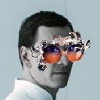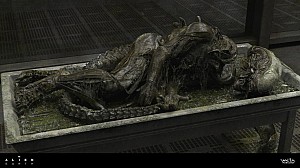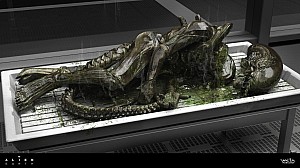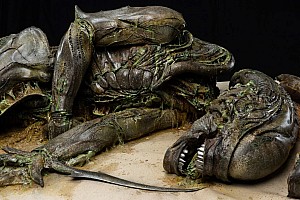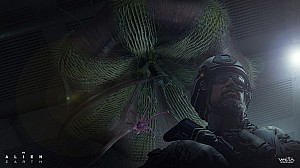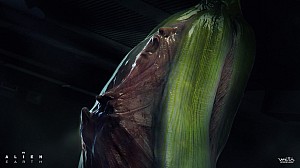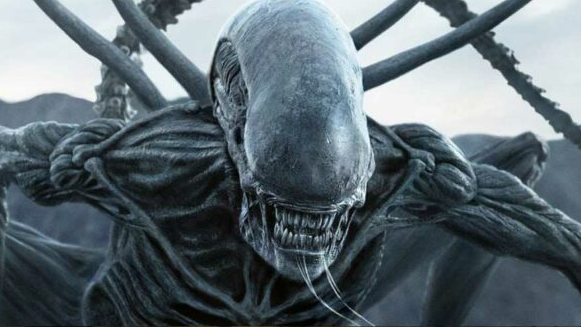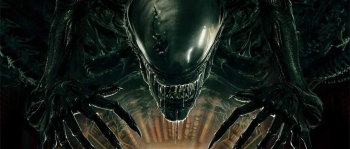Ridley Scott and the search for a technological deity
Alien: Covenant Forum Topic

Lawrence of Arabia
MemberChestbursterOct 29, 20177099 Views8 Replies
"Imagine for a second the way that you thought the future was going to look as a child. It was perfect, right? Flying cars to take you anywhere you wanted to go, robot servants to wait on anything your heart desired and machines that could print money so you didn’t have to get a job and instead could sit around watching TV all day. It was a place that you wanted to live in.
This is often the way we often think of the future, in one sense or another — a period of progression. Okay, maybe our goals have grown to become more than never having to get off the couch, or maybe they haven’t for some people. Still, living in a futuristic world is something we often would naively look forward too. Surely we’ll get everything straightened out by then and life will be better, even if issues like climate change are presently hindering that vision. Thoughts of current world issues go on the back-burner as we wait — we wait and we tell ourselves that once humans build the proper technology, the future will finally arrive and we’ll be able to take hold of our destiny.
Director Ridley Scott doesn’t necessarily share the same optimistic view of the future (maybe he did when he was a kid, who knows). Sure, he might agree that technology is going to become more and more prevalent and that humans will try to use it to wait on them, but his thoughts on the creation and implications of these technological takes a different turn.
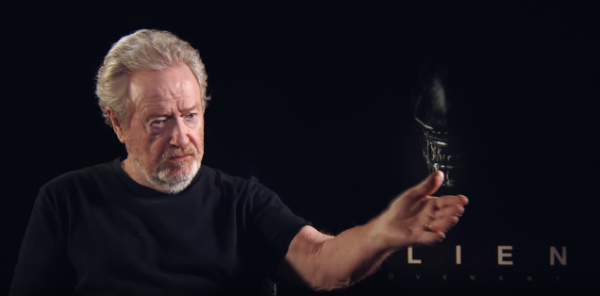 Credit: YouTube
Credit: YouTube
Not everything Scott himself creates is a guaranteed a home run— Robin Hood, Exodus: Gods and Kings and The Counselor were all let-downs. Yet, Scott is also responsible for some of the most influential science fiction films that have ever put to screen — including Alien, Blade Runner, Prometheus (I know, I know, we’ll get there) and, most recently, Blade Runner 2049 (technically Scott was only an executive producer, but his influence had a big role in creating that film). These films all represent and share commonalities about the evolution of technology and its place in the world. A place that humans inherently fear and try to control. A place where we’re constantly trying to define the roles that characters will take, only to realize we don’t and never will have that power. A place that’s a lot less welcoming to our own species than we may realize.
Alien (1979)
“There is an explanation for this, you know”
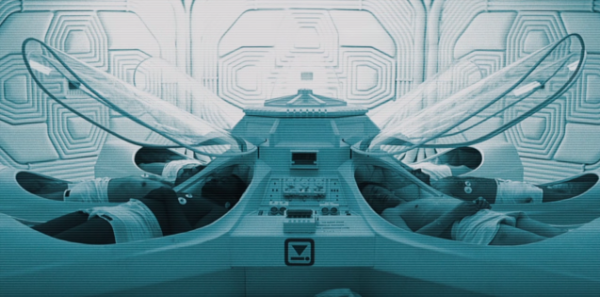 Credit: YouTube
Credit: YouTube
Alien opens to never-ending nothingness — empty, desolate space that holds no signs of life. After a few minutes, the Nostromo (which is Italian for boatswain, which is a ship’s officer who’s in charge of the crew) comes into view — a beacon of light in the darkness. We watch the ship slowly turn itself on, light up and sit there for a good couple of minutes before any of the humans on board are actually awoken.
In Alien, the ship and the technology it brings represents a character in it of itself. The ship repeatedly breathes steam and screams with alarms. The wiring is referred to as its guts and the air-ducts as veins. The ship is responsible for everyone on board — and when it starts to break down and fail, the humans start dying one by one. Without it, they can’t survive. By the end of the film it’s clear: this isn’t about the alien vs. the crew of the Nostromo, it’s the alien vs. the Nostromo itself.
This idea of the characterization of technology is physically represented with Ash (Tom Skerritt), the android who’s brought aboard and is harvesting a secret own agenda of his own. For most of the film, the humans assume Ash is working for them. He’s the scientific officer on board, the brains of the operation, the one who’s meant to follow orders. Ash is there so they don’t have to work as hard, and he’s often contrasted with the other characters — he’s in the lab studying while the rest of them are goofing off and arguing about how big their paycheck is going to be. In some ways, this makes Ash more lifelike than anyone else. While he is forced to be a product of the company — given the fact that the company created him, something he’ll never be able to escape from — everyone else chooses to be.
And as the film goes on, we learn that he’s here for entirely different reasons than any of them — he wants to take the alien creature and study it, while everyone else wants to kill it. Everyone on board, in Ash’s eyes, is expendable.
Ultimately Ash’s plan fails and he winds up dead, but it begins to raise questions that Scott will go on to further discuss in his career — if we need technology to survive (and we clearly see that we do), do we have any chance once it turns on us? And, even more importantly, why is it turning on us to begin with?
Blade Runner (1982)
“I’ve seen things you people wouldn’t believe.”
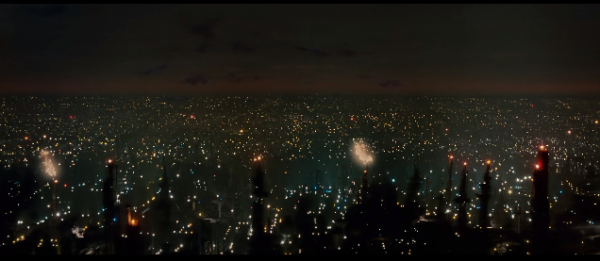 Credit: YouTube
Credit: YouTube
The opening to Blade Runner is essentially the exact opposite of Alien. Instead of an empty and lifeless world, we’re immediately thrown into a planet that’s screaming ‘in-habitation.’ Guiding us through the Los Angeles skyline, we see signs life everywhere — with flying cars, skyscrapers and advertisements that flood the human gaze as far as the eye can see.
Soon we meet Deckard (Harrison Ford) — a Blade Runner in charge of hunting down and killing rouge replicants (androids) who are illegally living on Earth. Replicants were designed to look and act like people in nearly every way. They’re even given memories, which strengthens their emotional core to become even stronger than that of a humans — as Leon, a replicant, is clearly upset when he’s receiving the Voight-Kampff test and can’t comprehend why someone wouldn’t help an innocent tortoise.
This Voight-Kampff test is the only way to actually tell whether a being is human or replicant. It consists of a series of questions intended to provoke an emotional reaction and a machine (one which itself is seen breathing) that stares deep into the being’s eyes (another repeated image throughout the film).
Still, even though replicants are practically the same as real people and have evolved to grow emotions, humans insist that they are soulless creatures designed to be used for their own benefit. Replicants are seen as nothing more than slave labor — some of them even prostitutes — who are shipped off-world and given no longer than a four year life-span.
But replicants aren’t actually that simple-minded. They revolt, come to Earth and try to live peacefully amongst the population. Eventually Roy Batty, the leader of them all who’s viewed as the perfect specimen, kills his creator Tyrell after Tyrell fails to see the beauty in him. The neglected creation takes over for the careless creator. The replicants strong emotions, then, have evolved to a strong conscience — one that’s impossible to ignore upon realization.
Deckard serves as a mix of both worlds. Regardless of whether you think he’s a human or a replicant (seeing how the end of the film leaves it ambiguous), consider the fact that we don’t know. Our uncertainty on his true nature shows the advancement of technology and the evolution of a soul — despite the constant denial that one exists. Deckard shoots living creatures and tries to deny any feelings for them. Yet, the feelings are still there — seen in his interactions with Rachel. Rachel tries to deny the fact that she’s a replicant. Yet, she is. Human or machine, the future — for better or worse — has developed a similar conscience. The difference between the two is that replicants simply want to be acknowledged as being alive while humans, fearing what this could mean, deny their creation this title and instead try to suppress it.
Blade Runner 2049 (2017)
“Pain reminds you that the joy you felt was real.”
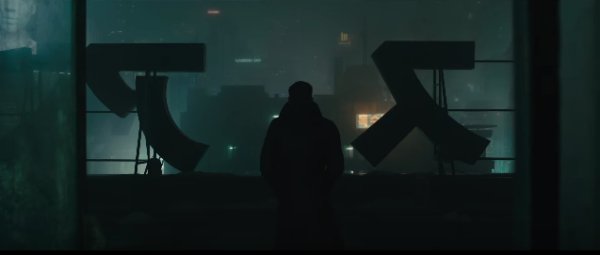 Credit: YouTube
Credit: YouTube
Blade Runner 2049 just hit theaters and we haven’t yet had the opportunity to properly re-watch and analyze the film as much as we’d like. However, 2049 still provides an opportunity for Denis Villeneuve and Ridley Scott to work together to expand the universe and thought process which was so prevalent in Blade Runner.
We learn from the get-go that K is a replicant Blade Runner, one who’s hired to hunt down his own kind. Yet, even then, he still isn’t given the same rights as humans. We’re also told that replicants have evolved even further — they’re now capable of creating themselves, as Rachel seems to have given birth before she died.
The government’s response to the news is to track down the child and kill it before anyone finds out about it, because it could create a global outbreak. The humans — at least those in charge — are acting out of fear. Their creation is no longer fulfilling their demands and could destroy them. Therefore, they must destroy it first.
The technology itself, however, isn’t worried about destroying humans — at least not until the humans engage first and force it to react. Rather, it’s on a path of self-discovery. K is constantly searching his memories, trying to figure out his purpose and whether he’s the child. He isn’t. Still, this inner search is what gives him life, morales and a conscience. Through it all, it’s still his journey — a journey that leads him into a place of awareness.
The point here is that it once again doesn’t matter whether the being is artificial or biological — a living creature is capable of having a soul, regardless of whether they’re told they are allowed to feel emotions or not. K tried living emotionless, taking orders from a company to kill his own kind but found he could not. The creators see this and fear it. They try to control it — and once that fails they realize the only remaining way to control is to kill.
Prometheus (2012)
“Big things have small beginnings.”
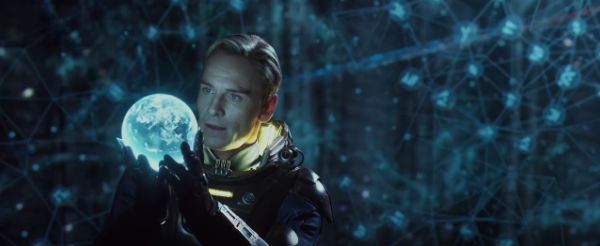 Credit: YouTube
Credit: YouTube
I’m well aware of the public’s reaction to Prometheus. There are a lot of people who didn’t respond well to the film and some who flat out despise it. I get it. I think it somewhat falls apart in the third act as well, and I’ll also never understand why Charlize Theron couldn’t have just run sideways when the ship was falling on her.
Yet, when looking at the grand scale of the film — what this movie is actually trying to accomplish — those are minor and relatively unimportant flaws. With Prometheus, Scott is making a point about creators and creation that nails the beliefs and ideas that Alien and Blade Runner set up. And this point is made through the character of David (Michael Fassbender).
David is another android. One who is meant to serve Weyland directly. He’s not given rights or sympathy of any kind. Weyland himself says, “David is the closet thing to a son I’ll ever have. Unfortunately he is not human. He won’t grow old. He will never die. And yet he is unable to appreciate these remarkable gifts, because that would require the one thing David will never have — a soul.”
This is the way that most of the crew of the Prometheus treats David, despite the fact that he’s more qualified for the mission than any of them. They aren’t interested in their creation. Instead, they’re interested in finding their creators. They’re being sent to a far planet after they find signs that the creators of human life might be living there. The humans want to find their God — which they name ‘engineers,’ and they naturally assume that their God wants to meet them.
This makes the trip an altogether pointless one for David, seeing how he interacts and is constantly let down by his creators everyday. So, much like Ash in Alien, he has instead come aboard the ship with his own agenda — he’s come to create.
David knows that humans don’t care about his rights, and could probably guess that the engineers aren’t going to care about the human rights — that’s the natural order of things. Creators want to create so that they have something to control. However, once finding unique strands of DNA that he can use to form new life, he sees his chance and takes it. He infects Holloway, who infects Shaw, who then gives birth to a brand new creature — one David is responsible for. David has added to the natural order things of creation and, unlike the humans, he better understands his place in all of it.
The humans do eventually find the engineers, and then learn they’re trying to rebuild their ship so they can come to Earth and destroy up. They stop the threat and kill the engineer, but Shaw can’t let it go. She needs to know why. Why go to all the trouble? Why bother to create in the first place?
David already knows the answer. He’s always known. Creators are disgusted by what they make. We create because we’re bored, and when we realize what we’ve made is actually alive we quickly try to control it. Eventually our creation evolves out of our control, and our only option left is then to kill it.
Which then calls to the big question: Is David in the wrong? Yes, he purposefully put the entire crew in danger with his creation, which resulted in all but one of them being killed. But Scott wants us to ask if that’s such a bad thing — if we, as humans, can’t even acknowledge that our own creation is alive, do we deserve life?
There are no out-right answers here, but rather comes down to a matter of interpretation. Scott has never been as interested in answering questions as he is with proposing them.
However, the question I keep coming back to is this: Is it possible for the creator and creation to co-exist? Again, not a clear answer, although Scott drops little hints — seeing how Deckard and Elizabeth form a relationship despite their true natures and that David doesn’t immediately force his creation into servitude upon its inception. Maybe, if we indulge the idea set up in Scott’s universe, it really could be capable of correcting this natural order and co-existing. Maybe. But we don’t. We deny the beings we gave life any rights to live. As a result, Scott’s worlds often appear dark, grim and hopeless — like no place a human would ever want to be trapped in. And we ask the powers above why — why is life like this? — without bothering to provide any answers to those down below us. Perhaps, Scott suggests, we’re asking in the wrong place.
That’s just one interpretation of Ridley Scott’s work — one that’s meant to start a conversation. So, what do you think about all of this? Do you see similar themes in the worlds he creates? Why do you think they always come off so dark, and what do you think his points are about technology?"
http://thecelebritycafe.com/2017/10/ridley-scott-search-technological-deity/
"The trick, William Potter, is not minding that it hurts."
Are you an avid Alien fan looking for a dedicated online community of likeminded fans? Look no further! Create your own profile today and take part in our forums and gain XP points for all the content you post!

